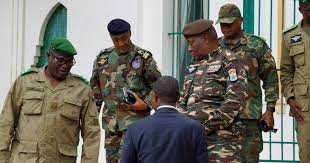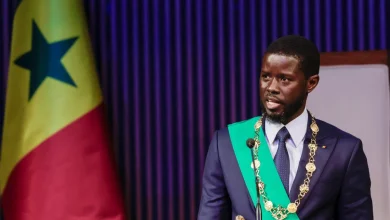
In a bid to enhance the oversight mechanisms of the Code of Conduct Bureau (CCB), President Bola Tinubu has nominated three new members to fill existing vacancies on the bureau’s board. The announcement was made through a formal letter to the Senate President, as disclosed by Bayo Onanuga, the Special Adviser to the President on Information & Strategy.
The nominated individuals are Fatai Ibikunle from Oyo State, Kennedy Ikpeme from Cross River State, and Justice Ibrahim Buba, a retired judge of the Federal High Court. These appointments are part of the ongoing efforts to strengthen the integrity and accountability of the CCB, which was established in 1979 to ensure public servants adhere to ethical standards and constitutional provisions.
The CCB plays a vital role in maintaining integrity within Nigeria’s public service, focusing on monitoring and enforcing compliance with ethical standards for public officeholders. The bureau operates with a 10-member board, and these new nominations aim to fill the vacancies and further enhance its capacity to uphold these standards.
On October 23, 2024, President Tinubu swore in Abdullahi Usman Bello as the Chairman of the CCB, alongside other board members, including Muritala Aliyu Kankia, E J Agbomayinma, Ben Umeano, and Juwayriyya Badamasiuy. Other members include Bulus I Zephaniah and Abdulsalam Taofiq Olawale.
This move by the President comes amidst ongoing developments concerning the Code of Conduct Tribunal (CCT). There has been a heated debate in the Senate and the House of Representatives regarding the removal of Umar Danladi, the Chairman of the Code of Conduct Tribunal, over allegations of corruption and misconduct.
On November 20, 2024, the Senate, led by Majority Leader Opeyemi Bamidele, invoked Section 157 (1) of the Nigerian Constitution to support a resolution for Danladi’s removal. However, the Senate later admitted that the section cited was inappropriate for this particular case. During plenary, Senate Leader Bamidele clarified that Section 157 (1) applied to different public officials and not to the CCT chairman.
To rectify this mistake, the Senate adopted the correct legal references: Section 17 (3) of the Nigerian Constitution and Section 22 (3) of the Code of Conduct Bureau and Tribunal Act of 2004. These sections require a two-thirds majority vote in both the Senate and House of Representatives to advise the President on removing certain public officers. The Senate’s move was subsequently concurred by the House of Representatives.
The resolution has now formally advised President Tinubu to remove Umar Danladi from office in light of the allegations of corruption and misconduct.





